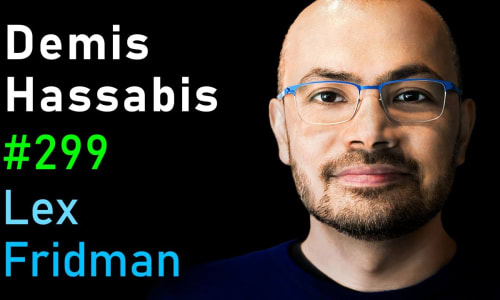See all Lex Fridman transcripts on Youtube

Demis Hassabis: DeepMind - AI, Superintelligence & the Future of Humanity | Lex Fridman Podcast #299
2 hours 10 minutes 38 seconds
🇬🇧 English

Omnivision Solutions Ltd
- Getting Started
- Create Transcript
- Pricing
- FAQs
- Recent Transcriptions
- Roadmap